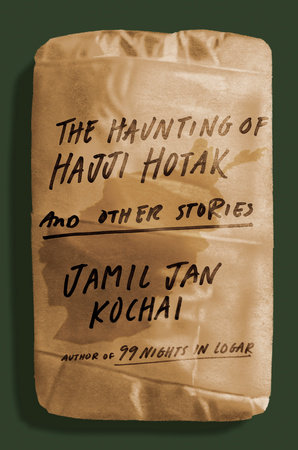DESCRIPTION:
Pen/Hemingway finalist Jamil Jan Kochai breathes life into his contemporary Afghan characters, moving between modern-day Afghanistan and the Afghan diaspora in America. In these arresting stories verging on both comedy and tragedy, often starring young characters whose bravado is matched by their tenderness, Kochai once again captures “a singular, resonant voice, an American teenager raised by Old World Afghan storytellers.”
In “Playing Metal Gear Solid V: The Phantom Pain,” a young man’s video game experience turns into a surreal exploration on his own father’s memories of war and occupation. Set in Kabul, “Return to Sender” follows two married doctors driven by guilt to leave the US and care for their fellow Afghans, even when their own son disappears. A college student in the US in “Hungry Ricky Daddy” starves himself in protest of Israeli violence against Palestine. And in the title story, “The Haunting of Hajji Hotak,” we learn the story of a man codenamed Hajji, from the perspective of a government surveillance worker, who becomes entrenched in the immigrant family’s life.
The Haunting of Hajji Hotak and Other Stories is a moving exploration of characters grappling with the ghosts of war and displacement—and one that speaks to the immediate political landscape we reckon with today.
Jamil Jan Kochai is the author of 99 Nights in Logar, a finalist for the Pen/Hemingway Award for Debut Novel and the DSC Prize for South Asian Literature. He was born in an Afghan refugee camp in Peshawar, Pakistan, but he originally hails from Logar, Afghanistan. His short stories and essays have appeared in The New Yorker, The New York Times, Los Angeles Times, Ploughshares, and The O. Henry Prize Stories 2018. Currently, he is a Stegner Fellow at Stanford University.
Further reading
Read: The Haunting of Hajji Hotak, The New Yorker
Review: The Echoes and Echoes and Echoes of War, NY Times
Prompt: What makes you angry politically? What upsets you about the direction the world is going in? Bring these frustrations closer to home. Then, after jotting some notes down, think about how you might re-work this into fiction starting with the smallest possible detail. Avoid writing about the thing that sparked this piece explicitly.
